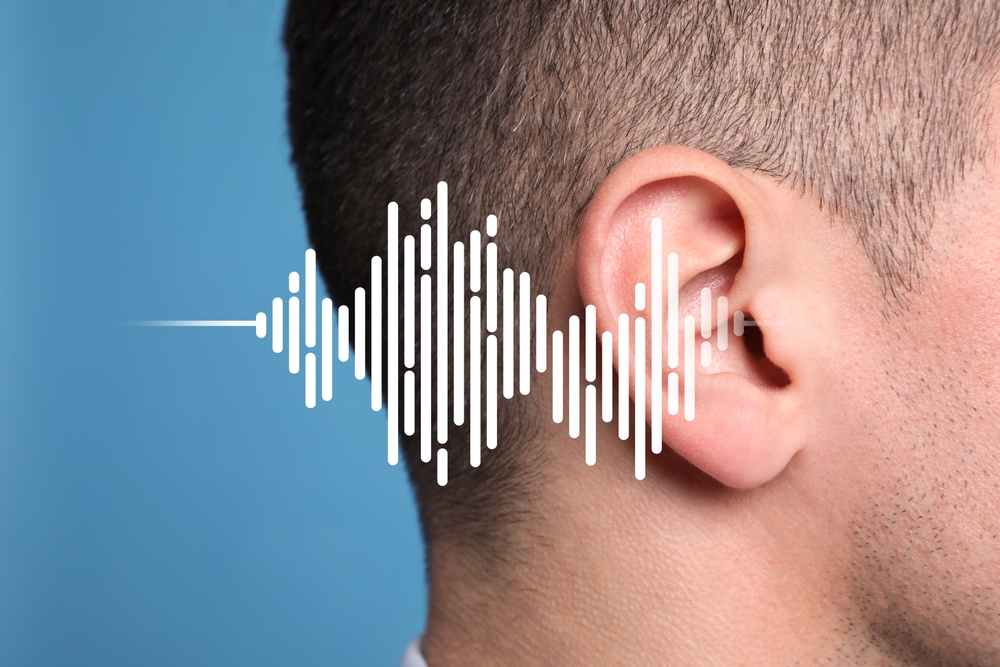 Tinnitus is a ringing or buzzing sound inside your head, affecting over 50 million people throughout the United States alone. These sounds can range from a mild buzz to a severe ringing, which can have a range of impacts on your daily life.
Tinnitus is a ringing or buzzing sound inside your head, affecting over 50 million people throughout the United States alone. These sounds can range from a mild buzz to a severe ringing, which can have a range of impacts on your daily life.
Fortunately, by understanding tinnitus and employing actionable strategies to manage these sounds, you can still lead a happy and fulfilling life with tinnitus. In this article, we’ll explore the intricacies of tinnitus, including the causes, effects, and common coping strategies.
Understanding the Intricacies of Tinnitus
Tinnitus, the perception of noise or ringing in the ears affects millions of people worldwide. While not a condition itself, tinnitus is a symptom of an underlying condition such as hearing loss, ear injury, or a circulatory system disorder.
The phantom noise can range from a low roar to a high squeal and may be heard in one or both ears. For some, tinnitus is a minor annoyance, but for others, it can be a significant disruption to their daily lives.
The Types of Tinnitus
Tinnitus can be classified into two main types: subjective and objective. Subjective tinnitus is the most common form, where only the person experiencing it can hear the noise. Objective tinnitus is much rarer and occurs when the sound can be heard by others, usually due to a physical issue such as a blood vessel problem or muscle contractions.
Exploring the Most Common Causes of Tinnitus
There are numerous factors that can contribute to the development of tinnitus. By understanding the cause of your tinnitus, you can take the first step toward overcoming this daily annoyance.
Some of the most common causes include:
- Exposure to loud noises: Prolonged or sudden exposure to loud sounds, such as music, machinery, or explosions, can damage the hair cells in the inner ear, leading to tinnitus.
- Age-related hearing loss: As we age, the hair cells in the inner ear naturally deteriorate, which can result in hearing loss and tinnitus.
- Earwax blockage: A buildup of earwax can irritate the eardrum and cause tinnitus.
- Ear infections and disorders: Conditions such as otosclerosis, Meniere’s disease, and vestibular schwannoma can contribute to tinnitus.
- Head or neck injuries: Trauma to the head or neck can affect the inner ear or the nerves connecting the brain and the ear, causing tinnitus.
- Medications: Certain medications, including antibiotics, diuretics, and chemotherapy drugs, can have tinnitus as a side effect.
- Cardiovascular disorders: Conditions that affect blood flow, such as high blood pressure and atherosclerosis, can contribute to tinnitus.
Recognizing the Impact of Tinnitus on Daily Life
Tinnitus can have a significant impact on an individual’s quality of life, and shockingly, research has shown it affects nearly 15% of the world’s population. The constant noise can be distracting and make it difficult to concentrate on tasks or engage in conversations. Many people with tinnitus report difficulty sleeping, as the noise becomes more noticeable in quiet environments.
The lack of sleep can lead to fatigue, irritability, and decreased productivity. Tinnitus can also take a toll on mental health. The persistent noise can trigger feelings of anxiety, stress, and depression. Some people may become socially withdrawn, as they find it challenging to participate in activities they once enjoyed. Fortunately, this doesn’t always have to be the case.
Employing Coping Strategies and Treatment for Tinnitus
While there is no cure for tinnitus, several coping strategies can help manage the symptoms and improve quality of life. Some effective strategies to mitigate its effects on your daily life include:
- Sound therapy: Using external sounds to mask tinnitus, such as white noise machines, nature sounds, or soft music.
- Relaxation techniques: Practicing stress-reduction methods like deep breathing, progressive muscle relaxation, meditation, or yoga.
- Cognitive-behavioral therapy (CBT): Working with a therapist to identify negative thought patterns and develop coping strategies.
- Tinnitus retraining therapy (TRT): A combination of sound therapy and counseling to help the brain habituate to the tinnitus noise.
- Hearing aids: For those with hearing loss, hearing aids can help amplify external sounds and reduce the perception of tinnitus.
To determine which is most effective for you, your audiologist may employ a variety of tests, such as tympanometry, pure-tone audiometry, or even MRI evaluations. Because tinnitus is a symptom of many conditions, these evaluations will help your audiologist treat it by addressing the underlying cause.
Seeking Treatment for Tinnitus to Improve Daily Life
If your tinnitus is impeding on your daily life, speak to an audiologist as soon as possible. By addressing the issue early on, you can maximize the efficiency of treatment and potentially prevent further hearing damage.
At El Dorado Hearing, we are dedicated to guiding individuals through the complexities of tinnitus with empathy, expertise, and the latest hearing health solutions. To get started on your journey to clear communication, take a quick quiz or give us a call at 520-278-5139.




Leave a Reply